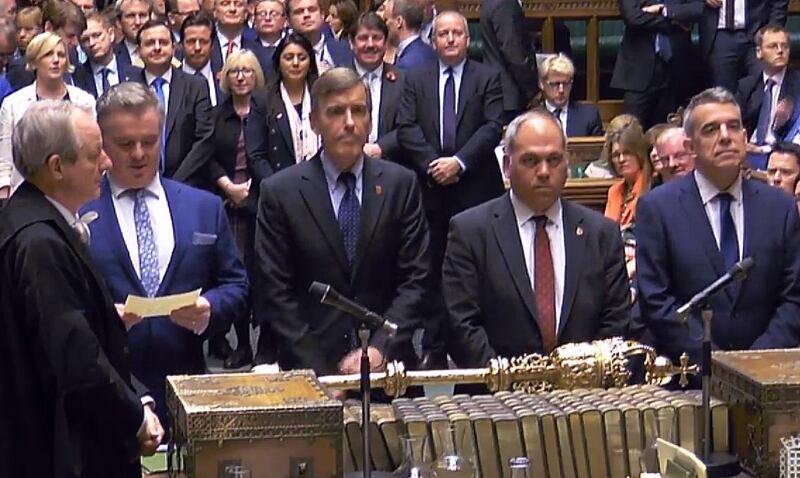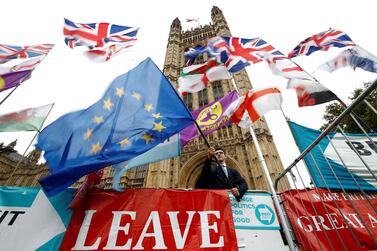The British government failed on Monday to obtain a majority from Parliament to support a general election for December 12 to break the deadlock over Brexit.
UK Prime Minister Boris Johnson wanted to secure Parliament’s backing for a new vote, which would have needed the support of at least two thirds of MPs in the house.
The bill, while supported by 299 members compared with 70 against, failed to achieve the 424 votes required. Labour party members abstained.
The government was expected to lose the vote but Mr Johnson said after the result that he would introduce a bill on Tuesday to try again for a December election with the support of the Liberal Democrats and Scottish National Party, which back a December 9 election.
"We will not allow this paralysis to continue and one way or another we must proceed straight to an election," Mr Johnson told Parliament after the result.
"This House cannot any longer keep this country hostage."
Labour leader Jeremy Corbyn said his party would look at Tuesday's bill but continue to rule out a no-deal Brexit.
After four years of polarising discussions and negotiations, the UK remains divided about how it intends to leave the EU.
While most of Parliament supports another general election to resolve the impasse, many want to prevent Mr Johnson's last-minute deal from being ratified before the public is called to the polls.
The prime minister, meanwhile, is trying to blame Parliament for frustrating the UK's withdrawal and for not allowing him to take Britain out of the EU by the October 31 deadline.
The government has spent more than £100 million (Dh472m) in an advertising blitz to urge the British public to "get ready for Brexit".
But it paused the campaign on Monday, leading to criticism from Labour that it was a waste of money.
On Monday, the EU agreed to grant Britain a three-month extension to the withdrawal deadline, giving it until January 31 to leave the bloc.
EU Council President Donald Tusk made the announcement after a meeting of EU ambassadors in Brussels on Monday morning.
Mr Tusk said the EU was offering a "flextension", meaning that the UK could leave before the deadline if a Brexit deal were ratified. It would be able to do this either on December 1 or New Year’s Day.
French President Emmanuel Macron was initially reluctant to grant the UK another extension.
But his objections were dropped after UK opposition parties hinted that they could support a December poll.
"The prospect of elections has strengthened significantly over the weekend," a source close to Mr Macron told Reuters.






